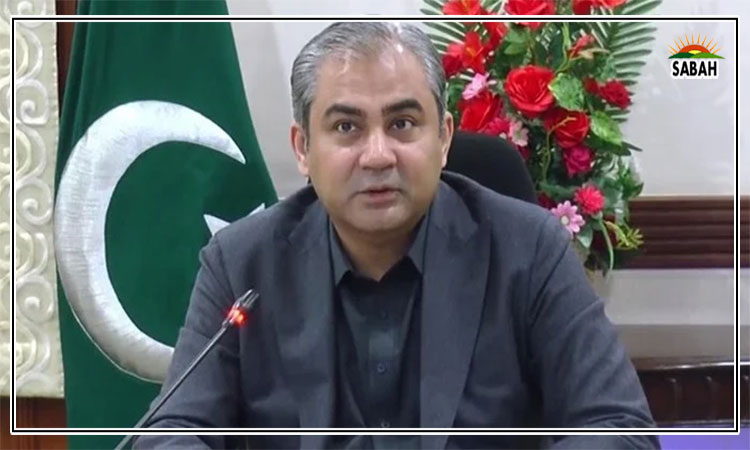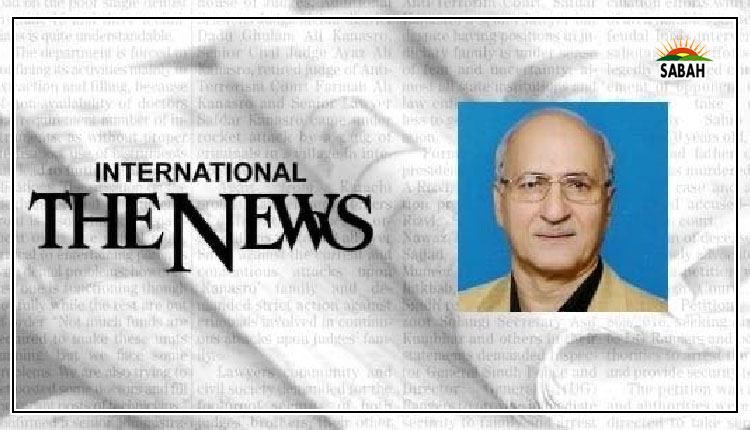A murky scenario …. M Saeed Khalid
Pakistans political and economic flux shows no sign of improvement as seen in some recent developments. Imran Khan continues to oppose the ruling coalition in a defiant manner. His massive jalsa in Lahore on March 25 proved if proof was needed that despite the formidable forces arrayed against him, he appears determined to prevent the PDM government from completing its term.
Khans efforts to disrupt the tradition of nationwide elections at the same time proved to be the proverbial straw that broke the camels back. The ruling coalitions initial obfuscation ended by a clear refusal to provide funds and security for an electoral exercise ahead of countrywide elections later this year. This was followed by the Election Commission of Pakistans announcement of a six-month delay in by-elections in Punjab, endorsed by the governor of Khyber Pakhtunkhwa (KP) for a similar postponement in his province.
The ruling coalition and the ECP have defied the Supreme Courts order to hold elections to the KP and Punjab assemblies within 90 days of their dissolution or a date close to that deadline. The PTI promptly filed a petition at the SC to call the government to order, in the hope that it would be directed to comply with the courts verdict or face contempt-of-court charges.
The president, who is expected to play the role of a moderator, hastily wrote a letter to the prime minister using harsh words calling upon him to carry out the SCs directive for provincial elections in Punjab and KP. The atmosphere was kept tense with the premier addressing an equally curt response to the president.
PTI leaders are hopeful that the apex court will maintain its earlier verdict ordering provincial polls forthwith. If that comes true, what means does the court have to get its order implemented other than holding the prime minister in contempt and thereby disqualifying him from continuing in office?
In the ensuing battle, the ruling coalition has challenged the CJPs power to assume suo-motu jurisdiction and constitute benches to issue far-reaching decisions. The ruling coalition has further threatened to reject the courts decision unless it is passed by a full bench, as opposed to the three-member panel reconstituted by the chief justice.
The battle-lines are more or less drawn while the countrys economy, which was in a state of spin, has received further shocks as the unabated inflation inches towards 40 per cent.
The governments measures to subsidize or offer free flour are unlikely to produce the desired effect as the prices of essential commodities have resulted in a back-breaking effect on a vast majority of people.
The worsening political crisis has cast more dark shadows on the prospects of a badly needed amelioration in the economy. The much-hyped IMF bailout package is still out of Pakistans reach even after raising energy prices and agreeing to raise the interest rate to over 20 per cent.
The Fund insists on lining up other sources of loan rollovers before signing its agreement with Pakistan. China has increased its commitment to the level of $2 billion, bringing a substantial increase in the State Banks foreign exchange reserves. Once the IMF releases payments, other sources of financing multilateral or private lenders will be more amenable to provide funding for the ailing economy.
In the prevailing circumstances, it is easy to advance doomsday scenarios casting further doubts on the prospects of amelioration in the days ahead. Yet, the optimists can counter by arguing that the looming economic crash has been averted and we might just keep muddling as often in our 75-year history. However, dramatic developments in the political arena do not give much room for hope.
The fact is that political wrangling at home and a global economic downturn have produced horrors no one could foresee a year ago. The PDM coalition that will be completing a year in office next week has nothing much to boast about its performance. One can argue that the spiral of inflation in the aftermath of Russias invasion of Ukraine has hit economies across the globe leaving Pakistan among the most seriously hit.
The economic managers have so far failed to address problems driving down the economy, leading to industrial shutdowns, massive layoffs, dwindling exports and exodus of qualified workers. Every household is affected by the rapidly increasing prices of essential commodities, fuel and transportation. It is time the government moves to raise wages and salaries to help millions of families cope with the unbearable cost of living.
Imran Khan has been insisting that the economy will not improve unless there is political stability and that can only be achieved by holding early elections something the ruling coalition will avoid even at the risk of a clash with the judiciary.
A possible way out of this deepening crisis could be through negotiations between the PDM and the PTI to work out agreed dates of elections. Failing that, the court should avoid the worst-case scenario by delineating a path in conformity with the letter and spirit of the 1973 constitution.
The writer can be reached at: saeed.saeedk@gmail.com
Courtesy The News












